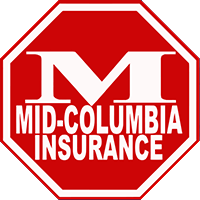Cheapest SR-22 Insurance
Richland Washington
Reinstate Your Drivers License!

What happens if my SR22 insurance cancels?
When your SR22 policy cancels or lapses, your insurance company is legally required to send an SR-26 form to the state to let them know that your policy is no longer active. If not handled promptly, the state will re-suspend your driver’s license and you will need to jump through all the hoops and pay all the fees required to reinstate your license once again.
What’s the difference between SR22 and regular insurance?
What if I need an SR22 in one state but live in another state?
How much does SR22 insurance cost a month?
This is why it is important to work with an independent agency like Mid-Columbia Insurance that partners with multiple companies to be sure you are getting more than one option to choose from.
Why is an SR22 insurance filing required?
- Driving under the influence (DUI) (aka driving while intoxicated (DWI)) or other alcohol related violations
- Serious traffic offense convictions, such as reckless or negligent driving
- Several traffic offenses in a short time period
- Driving with a suspended license
- At-Fault accident while driving without insurance, and even
- Driving without insurance in Oregon (even though you live in Washington)
The SR-22 requirement just means that proof of insurance has to be sent to the state and is one step towards getting your license reinstated and getting you back on the road.
Where do you get SR22 insurance?
Some preferred insurance carriers, if you inform them you need an SR22, might at renewal raise your rates significantly or cancel your policy. If you don’t want to jeopardize your existing coverage, talk to us about a Broad Form SR22 policy. It can be very inexpensive and should allow you to keep your preferred rates.
What is an SR22 insurance policy?
Although referred to as “SR-22 insurance,” An SR-22 is not actually insurance but instead is simply an endorsement to regular insurance policy. This endorsement is filed with the state as proof that you have insurance. The SR22 notifies the state that you have insurance in force and promises to notify them if your policy cancels.
What happens if I am late paying my SR22 insurance?
Late payment frustrations can be huge. Multiple calls to the DOL and your insurance company, proving to the DOL you have coverage, and trying to get avoidable DOL fees removed just because you got behind on your car insurance premiums.
What is Non-Owner SR22 insurance?
In Washington state we have a broad form policy that is a better option for those needing a stand-alone SR22 policy than a non-owned policy because non-owned policies don’t cover many borrowed vehicles but a broad form policy will. So, if you don’t want to lose your primary insurance provider due to your SR22 requirement, buying a separate broad form SR22 policy to handle the SR22 requirement may be a smart move.
How long is an SR22 insurance form required?
Be sure not to cancel your SR22 before the requirement is lifted since your insurer is required to inform the DOL that you no longer have an SR22 and your license could be suspended or revoked again. A simple call to the DOL is usually all that is required to find out how long you will need to carry the SR22.
I don’t own a car, do I still need to file an SR22?
If you don’t own a car and need an SR22, no problem. Washington drivers are eligible for a Broad Form insurance policy that provides coverage for any car you drive for personal use — owned or non-owned. We are the Broad Form SR22 Insurance experts.
Can I get SR22 insurance without a car?
A broad form policy is a smart choice for someone who does not own a car but needs an SR22 and wants to be able to drive. Once you get a car you can either get a policy on that car or keep your broad form policy since it covers owned and non-owned vehicles.
Do I need SR22 and regular insurance?
Best Places to See By Richland
Just the Facts about Richland
Richland () is a city in Benton County in the southeastern allowance of the State of Washington, at the confluence of the Yakima and the Columbia Rivers. As of the 2010 census, the city’s population was 48,058. July 1, 2019, estimates from the Census Bureau put the city’s population at 58,225. Along with the understandable cities of Pasco and Kennewick, Richland is one of the Tri-Cities, and is home to the Hanford nuclear site.
For centuries, the village of Chemna stood at the mouth of the current Yakima River. Today that village site is called Columbia Point. From this village, the Wanapum, Yakama and Walla Walla Indians harvested the salmon runs entering the Yakima River. Captain William Clark of the Lewis and Clark Expedition visited the mouth of the Yakima River on October 17, 1805.
In 1904–1905, W.R. Amon and his son Howard purchased 2,300 acres (9 km2) and proposed a town site on the north bank of the Yakima River. Postal authorities endorsed the designation of this town site as Richland in 1905, naming it for Nelson Rich, a declare legislator and land developer. In 1906, the town was registered at the Benton County Courthouse. It was incorporated on April 28, 1910, as a Washington Fourth Class City.
Richland was a small farm town until the U.S. Army purchased 640 sq mi (1,660 km2) of land – half the size of Rhode Island – along the Columbia River during World War II, evicting the 300 residents of Richland as without difficulty as those of the now vanished towns of White Bluffs and Hanford just upriver. The army turned it into a bedroom community for the workers on its Manhattan Project capability at the friendly Hanford Engineering Works (now the Hanford site). The population increased from 300 in July and August 1943 to 25,000 by the end of World War II in August 1945. All estate and buildings were owned by the government. Housing was assigned to residents and token rent was collected; families were assigned to houses or duplexes; single people were placed in apartments or barracks. Everything indispensable was provided, from clear bus encourage to buoyant bulbs, and trees were planted in people’s yards by the government. Much of the city was planned by Spokane architect Gustav Albin Pherson
and overseen by the Army Corps of Engineers. While there
were dormitories and barracks built at the time, prefabricated
duplexes and single intimates homes are everything that survive today.
Because homes were allocated based upon family size and need,
there were a number of floorplans available. These were each
identified by a letter of the alphabet, and correspondingly came to be known
as alphabet houses.
In 1954 Harold Orlando Monson was elected the first mayor of Richland and traveled to Washington, D.C. to negotiate increased rights (such as private home ownership) for citizens in military cities across the country.
Source: Richland, Washington in Wikipedia


